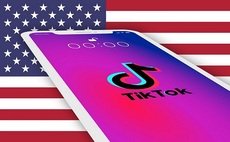Mars court filings show the extent to which Oracle would go to get more money out of one of its biggest customers
Mars, the US confectionery company that made revenues of $33bn in 2014, filed a court action against Oracle in October last year, which showed just how far the software vendor would go to ensure it...
To continue reading this article...
Join Computing
- Unlimited access to real-time news, analysis and opinion from the technology industry
- Receive important and breaking news in our daily newsletter
- Be the first to hear about our events and awards programmes
- Join live member only interviews with IT leaders at the ‘IT Lounge’; your chance to ask your burning tech questions and have them answered
- Access to the Computing Delta hub providing market intelligence and research
- Receive our members-only newsletter with exclusive opinion pieces from senior IT Leaders




















